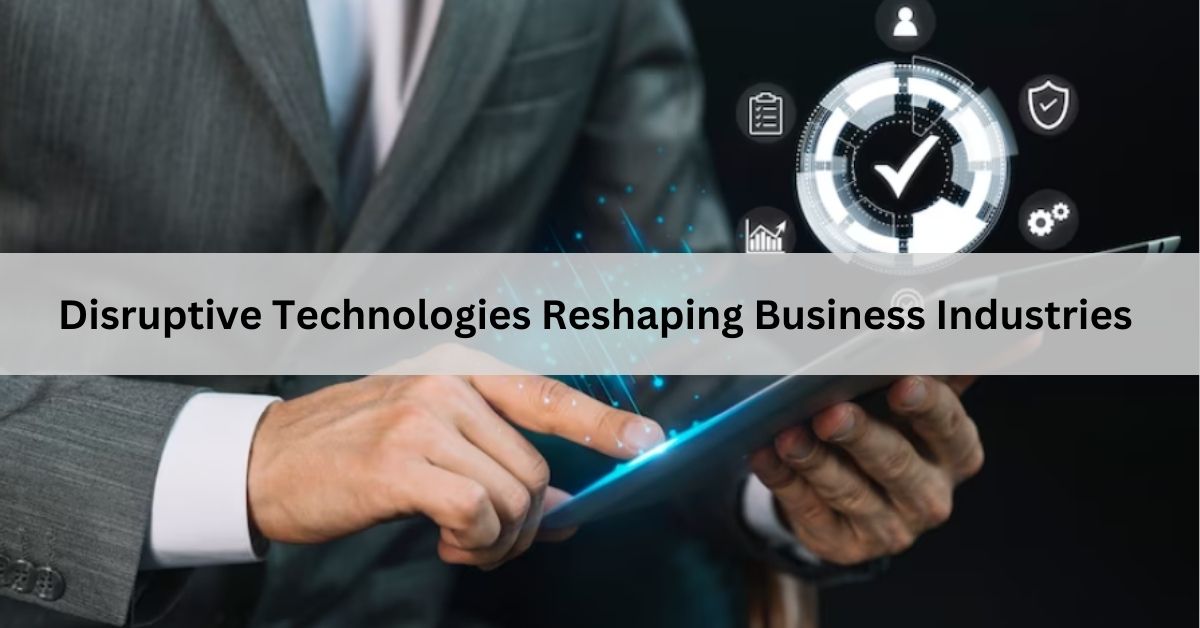Disruptive technologies are revolutionizing business industries, driving innovation, efficiency, and competitive advantage. This comprehensive guide explores the impact of emerging technologies—from artificial intelligence to biotechnology—and their transformative potential across various sectors. Discover how businesses can harness these technologies to optimize operations, enhance customer experiences, and pave the way for future growth and success in a rapidly evolving digital economy.
Artificial Intelligence and Business Automation: Revolutionizing Operations
Artificial Intelligence (AI) is revolutionizing business operations through automation, predictive analytics, and machine learning algorithms. AI-powered systems automate repetitive tasks, streamline processes, and optimize resource allocation, enhancing operational efficiency and productivity. Applications range from chatbots for customer service to data analytics for informed decision-making, enabling businesses to unlock new insights, improve accuracy, and accelerate innovation cycles. Embracing AI-driven automation empowers organizations to stay competitive, innovate faster, and deliver personalized experiences that drive customer satisfaction and loyalty.
Internet of Things (IoT) in Industry 4.0: Connecting Devices and Data
The Internet of Things (IoT) facilitates connectivity and data exchange between physical devices, enabling real-time monitoring, control, and optimization of operations in Industry 4.0. IoT sensors embedded in machinery, vehicles, and infrastructure collect and transmit data for predictive maintenance, supply chain optimization, and remote monitoring. By harnessing IoT technologies, businesses gain actionable insights, reduce operational costs, and enhance decision-making capabilities. Integrating IoT with AI and cloud computing drives digital transformation, improves efficiency, and fosters innovation in manufacturing, logistics, and smart city initiatives.
Virtual Reality (VR) and Augmented Reality (AR) Applications: Enhancing Experiences
Virtual Reality (VR) and Augmented Reality (AR) technologies enhance user experiences by merging digital content with the physical world. VR immerses users in simulated environments for training, design prototyping, and virtual tours, while AR overlays digital information onto real-world settings, transforming retail experiences, remote assistance, and marketing campaigns. Businesses leverage VR/AR to engage customers, enhance employee training, and prototype products with greater accuracy and efficiency. Embracing immersive technologies drives customer engagement, accelerates learning curves, and opens new avenues for creativity and innovation.
5G Technology and its Business Applications: Empowering Connectivity
5G technology promises ultra-fast, low-latency connectivity, enabling transformative business applications across industries. With increased bandwidth and reliability, 5G supports real-time data transmission, IoT deployments, and immersive experiences such as remote surgery and virtual meetings. Businesses capitalize on 5G’s capabilities to deploy autonomous vehicles, enhance telemedicine services, and enable smart city initiatives. Leveraging 5G technology accelerates digital transformation, improves operational efficiencies, and unlocks new revenue streams through innovative services and applications that capitalize on high-speed connectivity.
Biotechnology Innovations: Advancing Healthcare and Beyond
Biotechnology innovations encompass genetic engineering, pharmaceutical development, and bioprocessing technologies that revolutionize healthcare, agriculture, and environmental sustainability. Biotech advancements include gene editing for personalized medicine, biofuels production from renewable resources, and biopharmaceuticals for treating complex diseases. Businesses invest in biotechnology to drive innovation, address global health challenges, and pioneer sustainable solutions that improve quality of life and environmental stewardship. Harnessing biotech innovations fosters collaboration across sectors, accelerates research and development, and promotes ethical practices in scientific discovery and application.
Autonomous Vehicles and Delivery Drones: Transforming Transportation
Autonomous vehicles (AVs) and delivery drones redefine transportation logistics, offering efficient, cost-effective solutions for goods and passenger mobility. AVs utilize AI and sensor technologies for autonomous navigation, enhancing safety and reducing traffic congestion. Delivery drones enable rapid, last-mile delivery of packages and medical supplies in urban and remote areas, revolutionizing supply chain logistics and emergency response capabilities. Businesses integrate AVs and drones to optimize delivery routes, reduce carbon emissions, and meet evolving consumer demands for faster, more reliable delivery services.
Predictive Analytics for Business Decision-Making: Anticipating Trends and Risks
Predictive analytics leverages AI and big data to forecast trends, anticipate customer behavior, and mitigate risks, empowering businesses to make informed decisions with confidence. By analyzing historical data patterns and real-time insights, predictive analytics models predict market demand, optimize inventory management, and personalize marketing strategies. Businesses gain competitive advantages by preemptively addressing challenges, optimizing resource allocation, and adapting strategies based on predictive insights. Embracing predictive analytics drives operational efficiency, enhances customer satisfaction, and fosters agile decision-making in dynamic business environments.
Emerging Tech Startups and Investments: Fueling Innovation
Emerging tech startups disrupt traditional industries with innovative solutions and agile business models that capitalize on disruptive technologies. Startups specialize in AI-driven analytics, blockchain applications, sustainable technologies, and digital health solutions, attracting investments from venture capitalists and corporate partners seeking growth opportunities. By investing in emerging tech startups, businesses gain access to cutting-edge technologies, talent, and market insights, fostering collaboration and co-innovation. Supporting startup ecosystems accelerates digital transformation, promotes industry-wide innovation, and positions businesses at the forefront of technological advancement and market disruption.
Conclusion: Embracing Disruptive Technologies for Future Growth
Disruptive technologies are reshaping business industries, driving innovation, and transforming the way organizations operate and compete in a digital-first economy. From AI-driven automation and IoT connectivity to biotech innovations and autonomous vehicles, businesses embrace transformative technologies to optimize operations, enhance customer experiences, and unlock new growth opportunities. By investing in emerging technologies, fostering innovation ecosystems, and leveraging predictive analytics for informed decision-making, organizations position themselves for sustained success in an increasingly dynamic and competitive global marketplace. Embrace disruptive technologies to innovate boldly, lead change, and shape the future of business industries.





